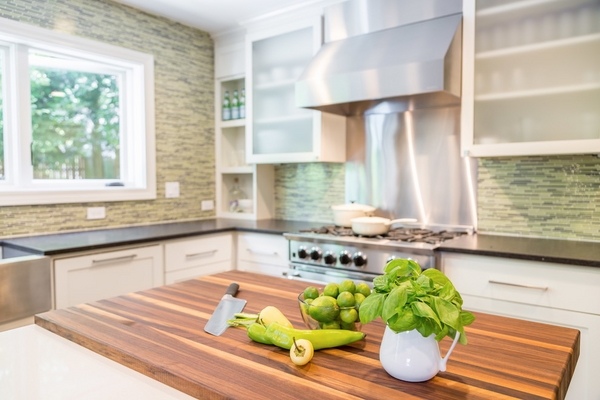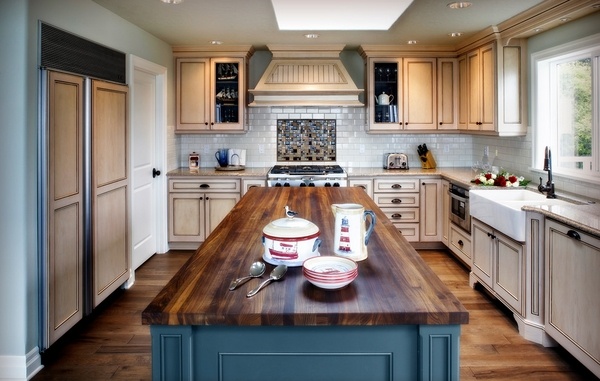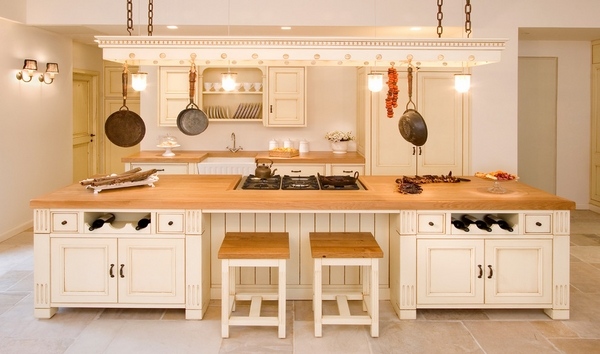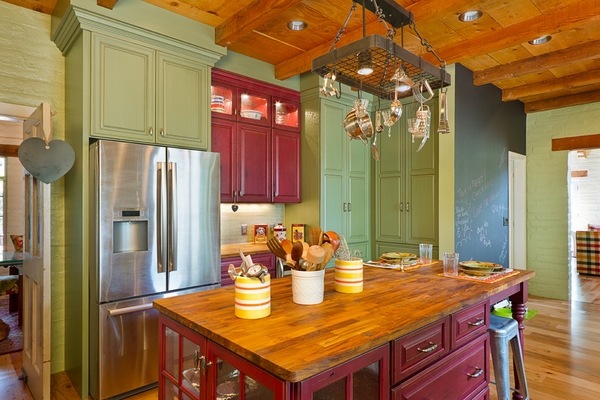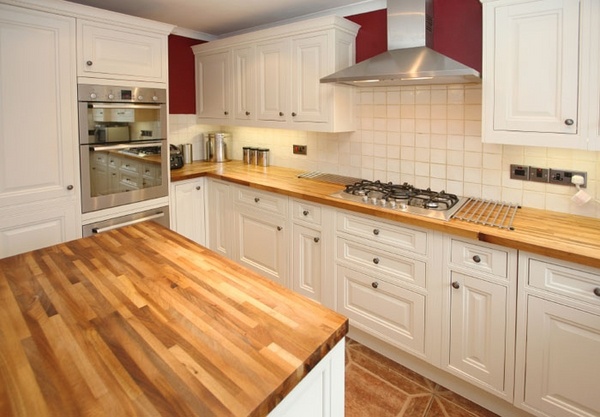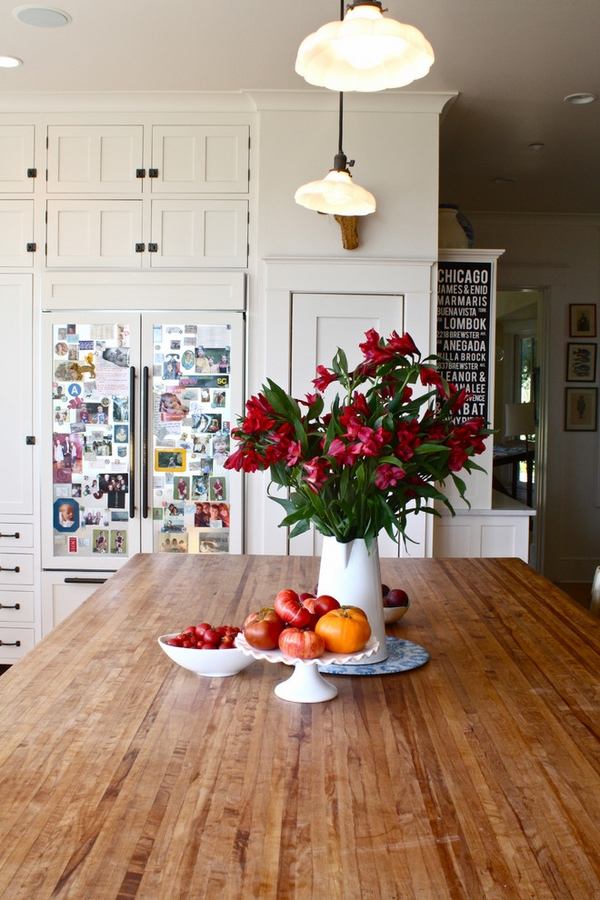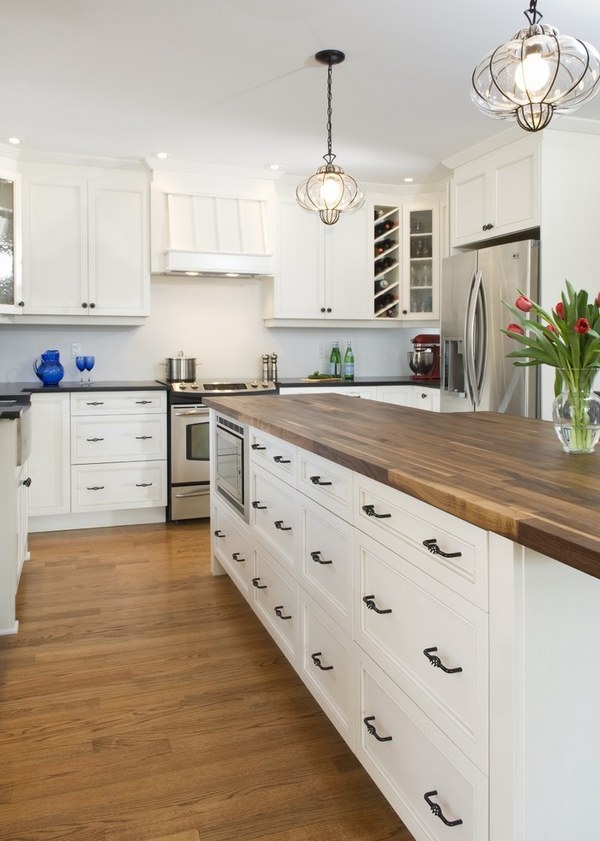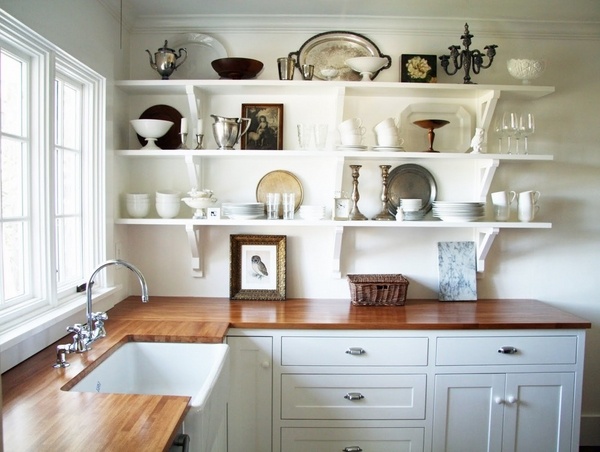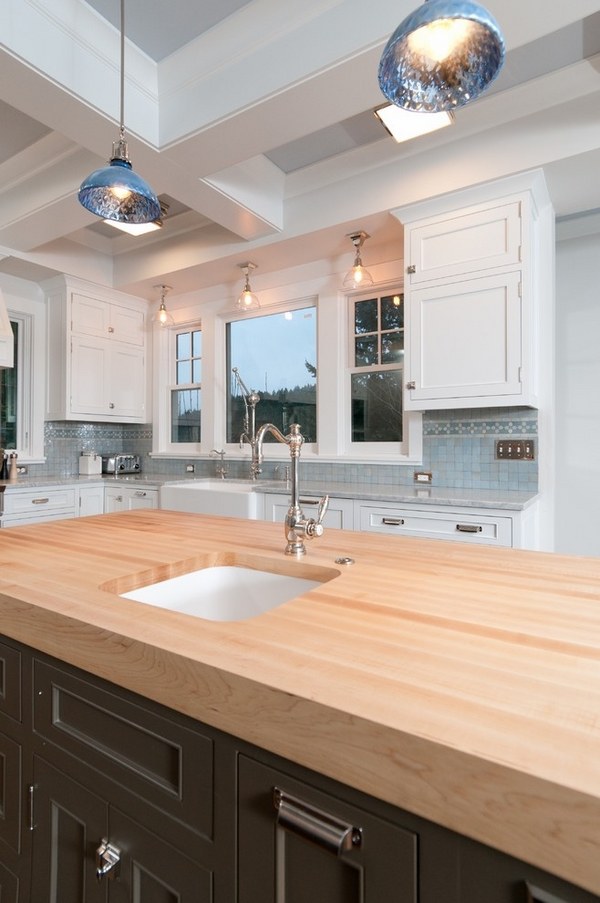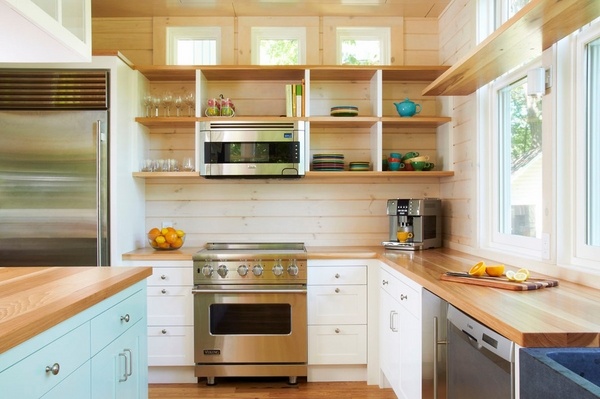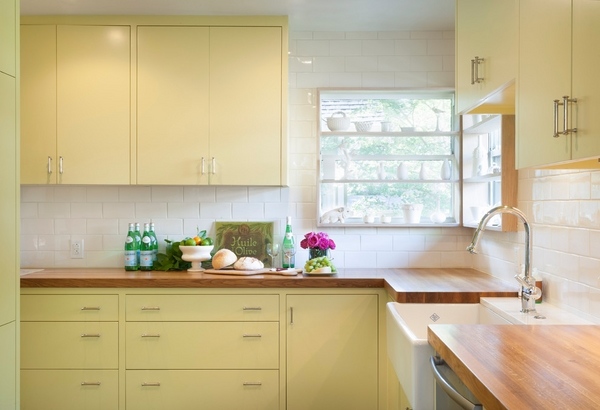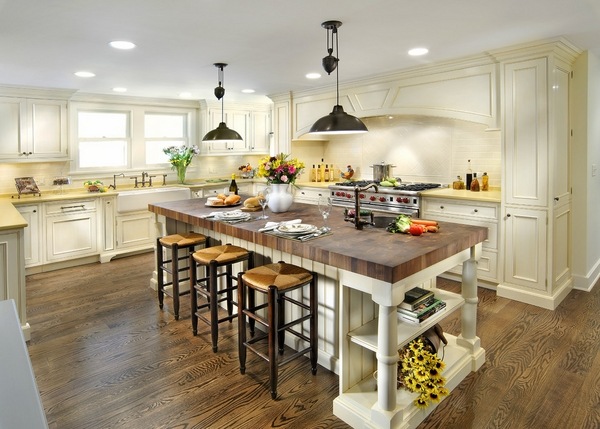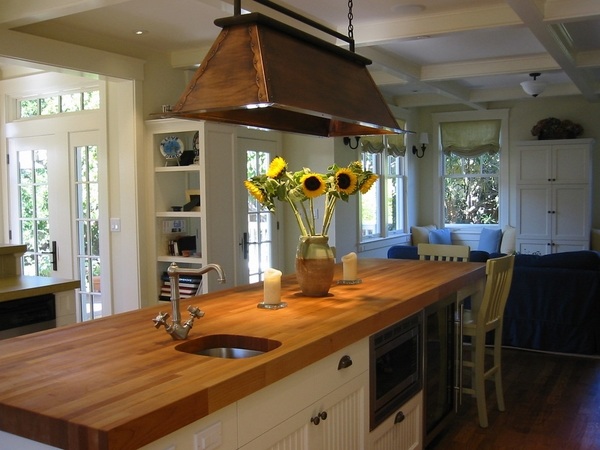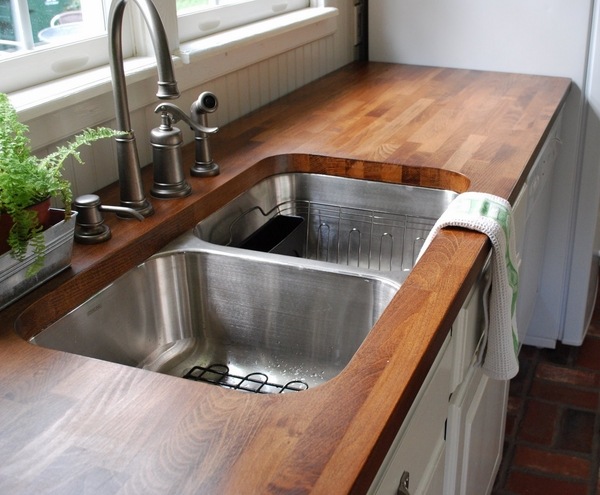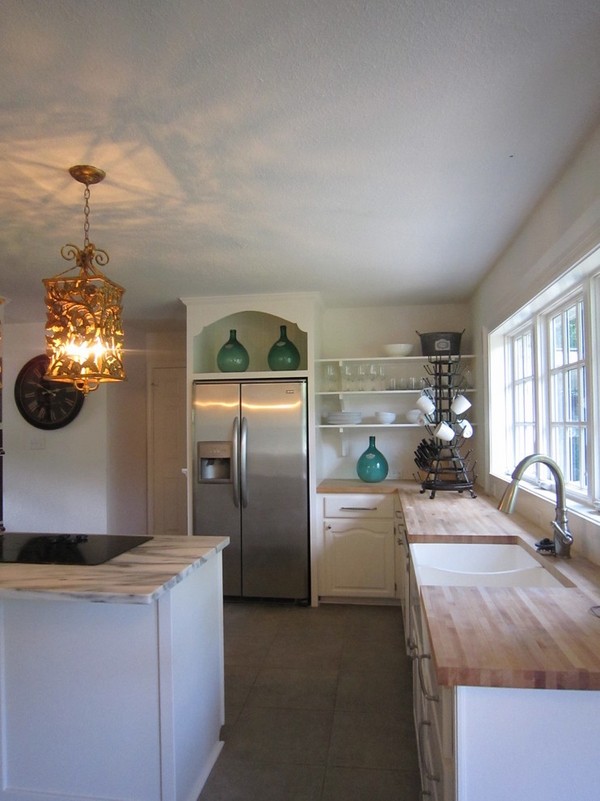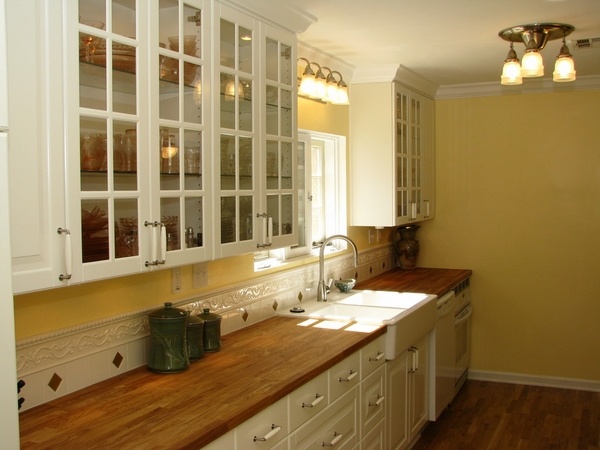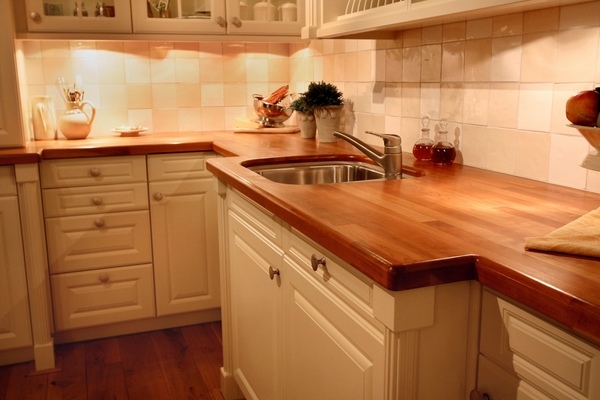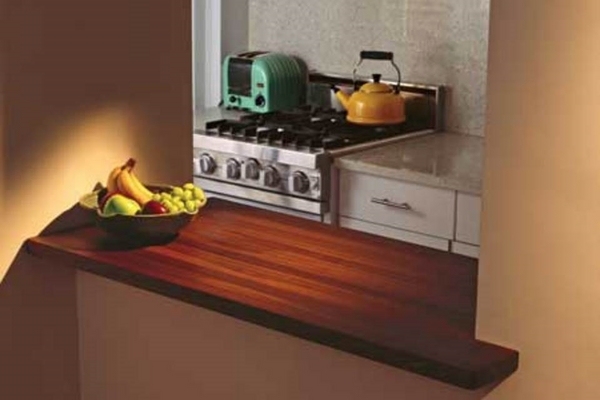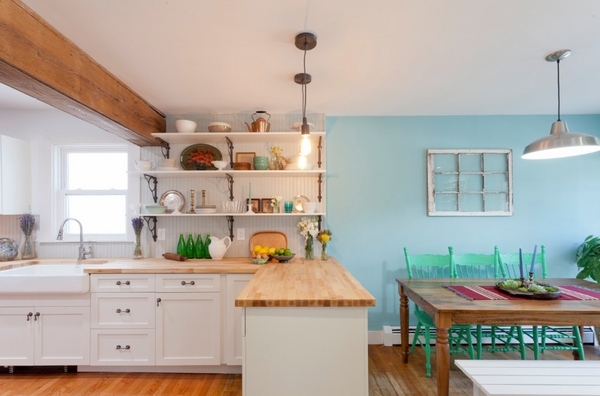Butcher block countertops are made of straight cuts of wood which are glued together into thick slabs. Wood is considered to be the most eco-friendly material and besides their natural beauty, this is the main reason why butcher blocks are gaining so much popularity.
There are three types of wood countertops – Edge grain, where the wood rails run parallel each other.
Flat grain is constructed from boards that are laid flat and their full width forms the surface.
End grain – made by fusing together the end pieces of small rectangular blocks so that the ends are visible on the surface. This type is considered as the strongest and is most expensive type of butcher block.
Countertops are a mandatory attribute in every kitchen nowadays and they have to meet the basic requirements – reliability, durability, resistance to damage, heat and moisture.
Butcher block countertop designs are made of hard wood species walnut, oak, maple, cherry, zebrawood, bamboo and can be finished with either natural oils like paraffin or beeswax or other oils. They have a great visual appeal and add warmth and natural colors to the kitchen interior.
In addition wood can be successfully combined with other materials like marble or granite. Another advantage of wood countertops is that they can be repaired and slight scratches can be sanded.
The natural antibacterial and antimicrobial properties of wood are another big plus. Finally, such countertops are much more affordable, particularly compared to granite or quartz countertops.
It is not recommended to seal butcher block countertops, especially if they are meant to be used for food preparation. Further to that unsealed countertops should not be placed near sinks as with time, wood loses its color and swell.
It is important to know that wood countertops are not heat or stain resistant and you cannot put a hot pan on the counter without a pad.
Dampness is an enemy to wood countertops and makes them susceptible to rot and discoloration. Finally, these counters require regular oiling every six months.

